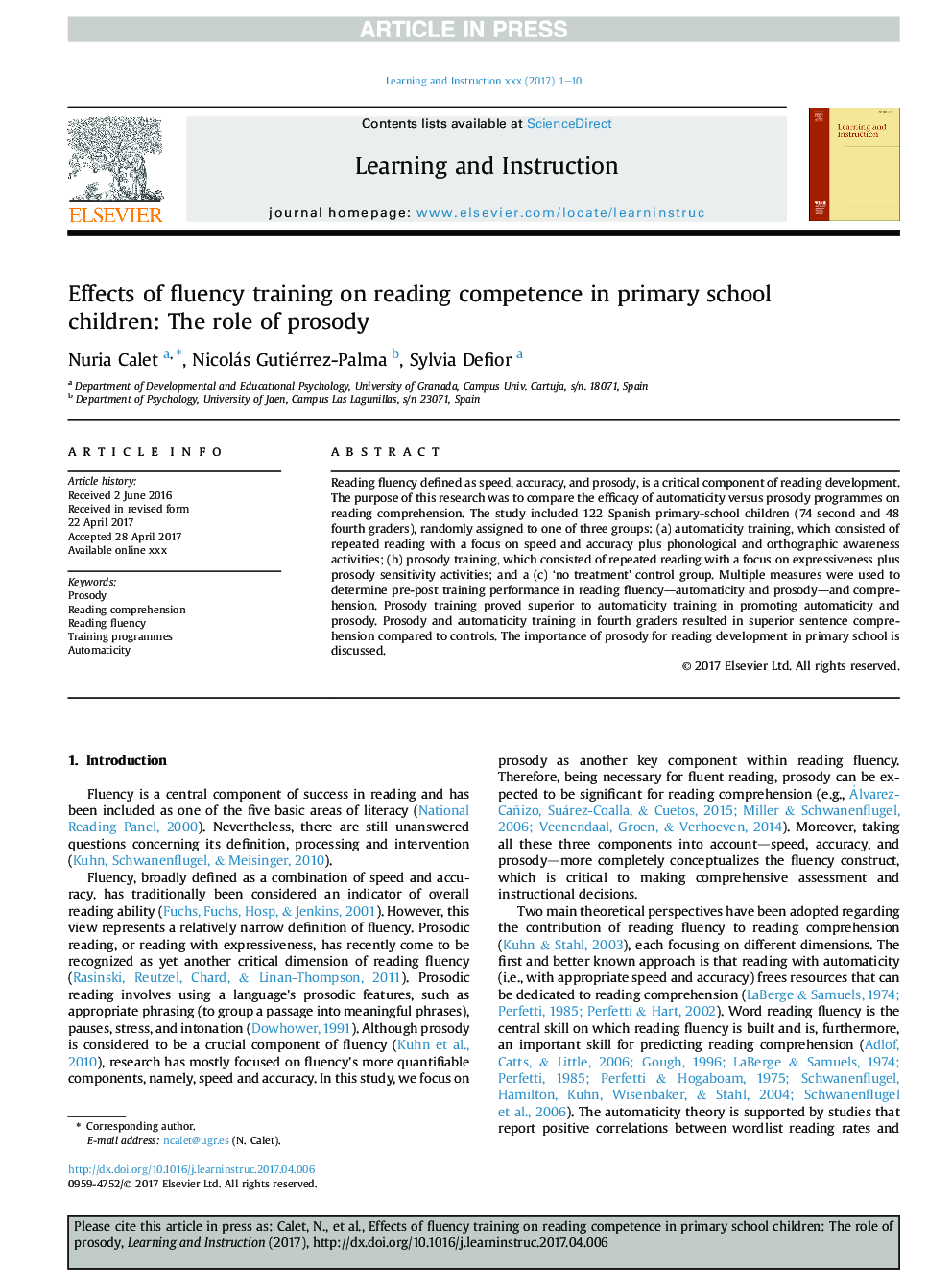| Article ID | Journal | Published Year | Pages | File Type |
|---|---|---|---|---|
| 4940201 | Learning and Instruction | 2017 | 10 Pages |
Abstract
Reading fluency defined as speed, accuracy, and prosody, is a critical component of reading development. The purpose of this research was to compare the efficacy of automaticity versus prosody programmes on reading comprehension. The study included 122 Spanish primary-school children (74Â second and 48 fourth graders), randomly assigned to one of three groups: (a) automaticity training, which consisted of repeated reading with a focus on speed and accuracy plus phonological and orthographic awareness activities; (b) prosody training, which consisted of repeated reading with a focus on expressiveness plus prosody sensitivity activities; and a (c) 'no treatment' control group. Multiple measures were used to determine pre-post training performance in reading fluency-automaticity and prosody-and comprehension. Prosody training proved superior to automaticity training in promoting automaticity and prosody. Prosody and automaticity training in fourth graders resulted in superior sentence comprehension compared to controls. The importance of prosody for reading development in primary school is discussed.
Related Topics
Social Sciences and Humanities
Psychology
Developmental and Educational Psychology
Authors
Nuria Calet, Nicolás Gutiérrez-Palma, Sylvia Defior,
